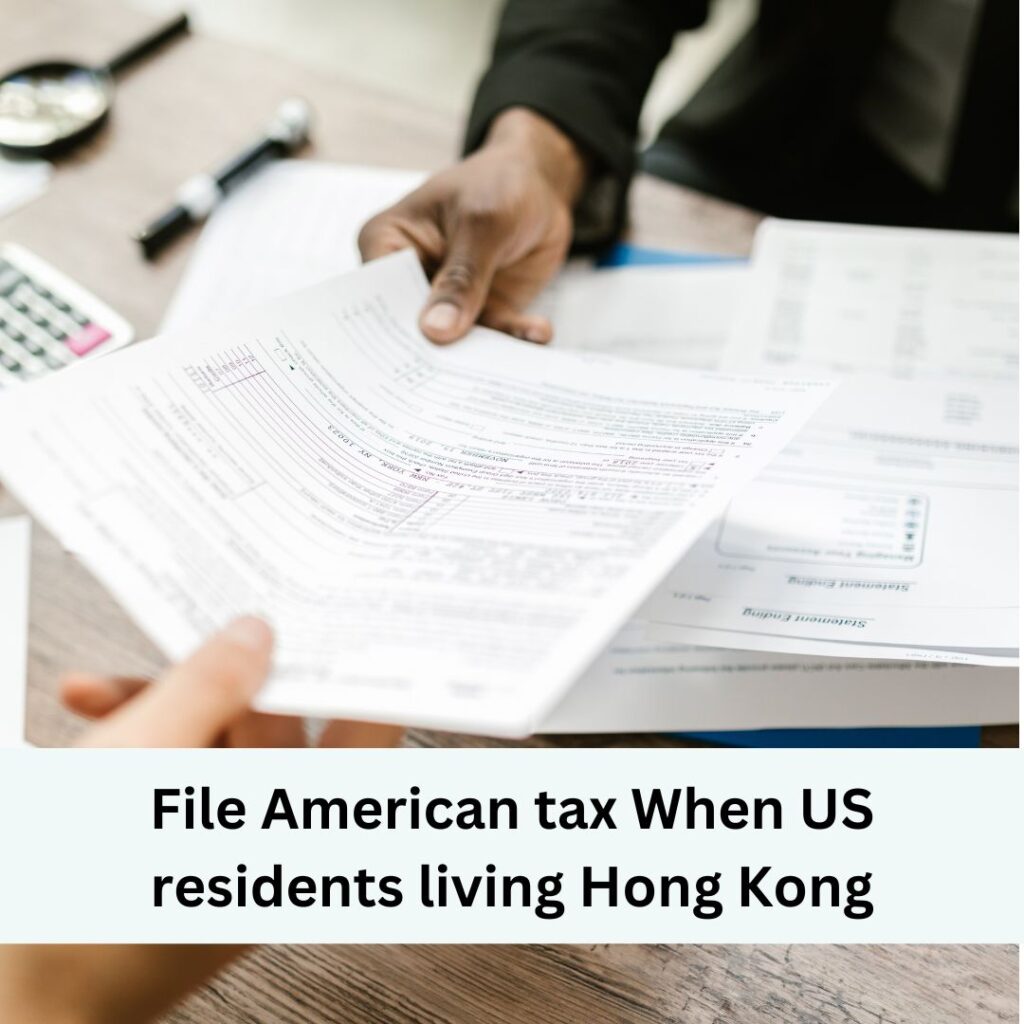Leaving the United States does not always mean saying goodbye to your tax obligations. The complexities of the American tax for US residents living in Hong Kong, and comprehending the requirements is critical. This blog investigates the question: Do US residents have to pay taxes when residing abroad? Examining the complexity of citizenship-based taxation, including filing requirements, exclusions, and tactics for properly managing US taxes while living abroad.
US Citizenship-Based Taxation: What It Means for Expats
The United States is the only country that has a citizenship-based taxation system, which means that US residents are taxed on their worldwide income, regardless of where they live. This includes money generated overseas, making tax responsibilities in the United States a constant for expatriates. The Internal Revenue Service (IRS) requires US people residing overseas to disclose their income, assets, and financial accounts in accordance with the same requirements as those who live in the US.
Navigating this system necessitates a thorough awareness of tax rules, filing procedures, and potential exemptions in order to properly minimize your exposure.
Navigating the US Tax System as an Expat: Filing Requirements and Exemptions
U.S. citizens residing overseas must file an annual tax return in the United States, stating their global income. The filing threshold, which determines when a person must submit a return, takes into account criteria such as income level, filing status, and age. It is critical to understand these rules in order to avoid penalties and ensure compliance.
Fortunately, there are exclusions and credits available to help expatriates reduce their tax burden. The Foreign Earned Income Exclusion (FEIE) is a strong mechanism that allows eligible expats to deduct a portion of their foreign-earned income from taxes in the United States. Furthermore, the international Tax Credit (FTC) allows taxpayers to balance their US tax due with international taxes paid on the same income.
Understanding Foreign Earned Income Exclusions and Credits for Expats
The Foreign Earned Income Exclusion (FEIE) is an important part of the US tax legislation for expats. Individuals must fulfil either the bona fide residence test or the physical presence requirement to qualify for the FEIE, showing their bona fide residency in a foreign nation or spending a minimum amount of time abroad.
Another useful tool for expatriates is the Foreign Tax Credit (FTC). Individuals can use it to offset their US tax due with international taxes paid on the same income. This can be especially useful for people who live in nations with higher tax rates than the United States.
Complying with US Tax Obligations as an Expat: A Comprehensive Guide
Meeting your tax duties in the United States as an expatriate entails more than just completing a tax return. If the aggregate value of their overseas financial accounts surpasses a specific level, expatriates are also required to declare them by completing the declare of overseas Bank and Financial Accounts (FBAR).
Navigating these regulations necessitates meticulous attention to detail and meticulous record-keeping. Seeking professional assistance from tax specialists who are experienced with the complexities of expatriate taxes can help to assure precise compliance and reduce the risk of fines.
Managing Your US Taxes Effectively While Living Abroad: Tips and Strategies
Managing US taxes effectively while residing overseas necessitates a proactive strategy. Keeping up with tax law changes, taking advantage of available exemptions, and carefully structuring your financial affairs are all important components of an effective tax strategy for expatriates.
For a successful tax-filing procedure, accurate records of income, spending, and financial activities are required. Seeking advice from tax specialists that specialize in expatriate taxation may also give significant insights and guarantee that you maximize possible benefits while remaining in compliance with US tax regulations.
Taxes must be paid by US residents living overseas, and negotiating the complexities of American tax rules while residing in Hong Kong or any other foreign nation needs care and understanding. Understanding the filing requirements, using exemptions, and getting expert advice are critical steps towards properly handling US taxes as an expatriate.
Also Read

